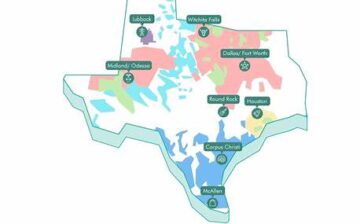
Moving can be stressful and tiring. It can also be expensive. Nowadays, the price of almost everything is going up, and money is tight for many people. Sometimes you have to move on short notice, for an emergency, or due to unforeseen circumstances. But how can you pay for your move?
Fortunately, there are ways to find the cash you need to pay moving costs. This post will offer some tips for creating a realistic moving budget so you can accurately estimate your moving expenses and financially prepare for your move. If you’re falling short, we’ll also suggest some resources to help with moving expenses, so you can focus on packing and preparing for moving day.
How to Create a Moving Budget
Creating a moving budget is essential so you know how much you can expect to spend on your move. A proper budget will help you account for the many costs associated with moving. It will also help you contain costs, so they don’t get out of hand.
Inventory Your Household Items
The first task is to inventory your household goods and decide what will move with you. Items you no longer need can be sold, donated, or discarded. Make a list of things you will move, starting with the largest items like furniture, large appliances, and vehicles. For smaller items like dishes, books, and clothes, estimate the number and total weight, which a moving company will use to calculate your moving cost.
Decide How You Will Move
An essential choice is hiring a moving company or moving yourself. Many people do some tasks themselves, like packing and hire movers to load and unload their boxes and furniture. Or they may move some smaller items themselves and hire movers for the larger items. Hiring professional movers costs more upfront but may save you time and effort.
If you’re hiring movers, some items to budget for are
- Packing costs
- Moving costs
- Moving insurance
- Additional costs for specialty services like paintings, musical instruments, and transporting vehicles
If you’re moving by yourself, some items to include in your budget are
- Truck rental
- Gas
- Insurance
- Moving supplies (e.g., dollies, furniture covers, boxes, tape, packing paper)
If you’re moving a long distance, you’ll need to consider transportation costs. These include items like lodging, meals, tolls, and gas.
If you’ll need storage during your move, you’ll want to contact various storage facilities and compare costs. You’ll also need to include moving costs into and out of the storage facility.
Also include costs like cleaning for your old home and new home if required, child and pet care, and incidental expenses. Moving can be stressful for young children and pets, and reliable child and pet care on moving day can make it easier for them and you. Moving comes with many unexpected events, and it’s wise to include some padding in your budget to account for unforeseen costs.
To minimize your moving costs, you can contact different moving and storage companies and compare estimates. But remember that the lowest cost company isn’t necessarily the best—it’s important to ensure the companies you work with are reputable and professional. Try to avoid moving during peak times like weekends and summertime. You can also consider having a moving sale to sell items you don’t need. This can help raise money for your move.
If you need help covering the costs of your move, there are resources that may be able to help.
How to Get Help With Moving Expenses
Your Employer
If you’re moving because your employer is transferring you to another location, you may qualify for moving assistance from your employer. Though not required, it’s common for employers to subsidize relocation costs. Consider asking your employer about moving assistance available. It may only cover some of your moving costs but can help with travel expenses.
Apply for Moving Grants
Many organizations offer grants for moving. However, these may be hard to get for families with higher incomes.
The federal Department of Housing and Urban Development (HUD), U.S. Department of Agriculture, and Department of Veterans Affairs offer housing and moving assistance to qualified individuals. The Federal Emergency Management Administration (FEMA) provides funding through the Federal Relocation Assistance Program to those whose home was destroyed in a disaster.
The Good Neighbor Next Door Sales Program is operated by HUD. This program helps teachers, emergency first responders, and more buy a home with a 50% discount off the listing price. Only certain designated single-family homes in revitalization areas are listed for purchase through the program. Visit www.hudhomestore.gov/Home/GNND.aspx to find what’s available in your area.
The Salvation Army and Catholic Charities USA are among the private agencies that provide grants and financial aid to low-income individuals and families. For referrals to moving resources, contact 211.org or call 211 on your phone. A trained operator can refer you to the resources you need and qualify for. The United Way supports this hotline, which focuses on helping you find organizations that assist with moving costs and provide other low-income moving assistance programs.
Move.org offers five grants each month of $500 to people who are planning to move. The grant can be applied to truck rentals, moving services, and car shipping. You must live in the United States and be moving within the next six months. Move.org offers five grants each month. Once you apply, Move.org will be follow up with you within 30 days of your move-in date to determine if you qualify for one of their grants. Visit www.move.org/moving-grant/ to learn more.
Crowdfunding
When you’re facing a pressing emergency, it can be difficult to ask people around you for financial help. Crowdfunding through sites like GoFundMe is a way to raise funds from friends and family through social media. This can be faster than applying for grants from government or private agencies.
Personal Loan
Although the interest rate may be high, this can be a stopgap solution to raise funds quickly. If you have good credit and need moving funds, a personal loan can help.
You can check with multiple lenders to see what’s offered. Some financial institutions will have various loan packages that can serve as a moving loan. Some may even have special “relocation loans” that will apply to your situation.
If you’re in school, you can use an education loan for moving expenses related to your schooling. If you’re moving to a new home or a dorm, you can use some of the money from your state, federal, and private loans to defray moving costs. If you’re moving after school to start a new job, leftover funds from your education loan can also be used for moving expenses.
Moving can be expensive, but proper budgeting can help keep costs under control. If you need help covering moving expenses, there are resources that may be able to help.
We hope you found this post, How to Pay for Your Move? useful. Be sure to check out our post, How to Save Money When Moving for more great information.
Have Experience in the Moving Industry? Want an Additional Income Stream? Work With All Around Moving!
Partner with us and join the Work With Us program. We will help you make money arranging professional moving services, by establishing your own moving consultant business operation. Click here to learn more. A nominal one-time start-up fee of $275.00, gives you the “key” to have your business up and running. There is $125.00 monthly recurring expense, and the cost of purchasing your own type of leads you want to work on.





